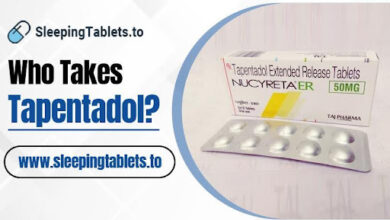10 Advanced Strategies Every Healthcare Pro Must Master!

HIPAA, often perceived as a maze of regulations, conceals invaluable insights that healthcare professionals must uncover to ensure compliance and uphold patient privacy. In this comprehensive guide, we delve into the concealed treasures of HIPAA and unveil 10 advanced strategies that every healthcare pro must master to adeptly navigate this intricate terrain.
Understanding HIPAA
HIPAA, the Health Insurance Portability and Accountability Act, enacted in 1996, establishes the benchmark for safeguarding sensitive patient information. It pertains to healthcare providers, health plans, healthcare clearinghouses, and their business associates entrusted with handling patient information.
The Hidden Treasures of HIPAA
While many healthcare professionals are acquainted with the fundamentals of HIPAA compliance, there exist lesser-known facets that wield considerable significance in preserving patient data security and ensuring regulatory adherence.
10 Advanced Strategies for Mastering HIPAA
- Conducting Thorough Risk Assessments
Regularly conduct exhaustive risk assessments to pinpoint potential vulnerabilities and security threats to patient information, enabling prioritized mitigation efforts.
- Implementing Multi-Factor Authentication
Fortify security measures by deploying multi-factor authentication for accessing electronic systems housing patient information, fortifying defenses against unauthorized access.
- Encrypting Data at Rest and in Transit
Apply encryption to all electronic protected health information (ePHI) both at rest and in transit to thwart unauthorized access or interception of sensitive patient data.
- Establishing Clear Policies and Procedures
Formulate and uphold clear and comprehensive policies and procedures governing the handling, storage, and transmission of patient information, ensuring organizational consistency and accountability.
- Training Staff on HIPAA Compliance
Deliver recurrent training and education to all staff members on HIPAA regulations, policies, and procedures, accentuating the significance of patient privacy and confidentiality.
- Regularly Updating Business Associate Agreements
Periodically review and update business associate agreements with third-party vendors or partners handling patient information to ensure alignment with HIPAA regulations and accountability for safeguarding patient data.
- Monitoring and Auditing Access Logs
Deploy robust monitoring and auditing systems to monitor access to patient information, identify any unauthorized activity, and ensure compliance with HIPAA guidelines.
- Implementing Secure Communication Channels
Leverage secure communication channels, such as encrypted emails and secure messaging platforms, to securely transmit sensitive patient information and fortify defenses against unauthorized access.
- Ensuring Physical Security of PHI
Enact measures to guarantee the physical security of PHI, including access restrictions to areas where patient information is stored, and the implementation of surveillance and access controls.
- Maintaining an Incident Response Plan
Develop and uphold an incident response plan to efficiently address data breaches or security incidents, mitigating the impact on patient privacy and facilitating prompt notification and reporting as mandated by HIPAA regulations.
Conclusion
In conclusion, mastery of HIPAA regulations is imperative for healthcare professionals to safeguard patient privacy and ensure compliance with regulatory mandates. By unlocking the secrets of HIPAA and adeptly implementing the advanced strategies delineated in this guide, healthcare professionals can confidently navigate the intricacies of HIPAA and effectively safeguard sensitive patient information.



